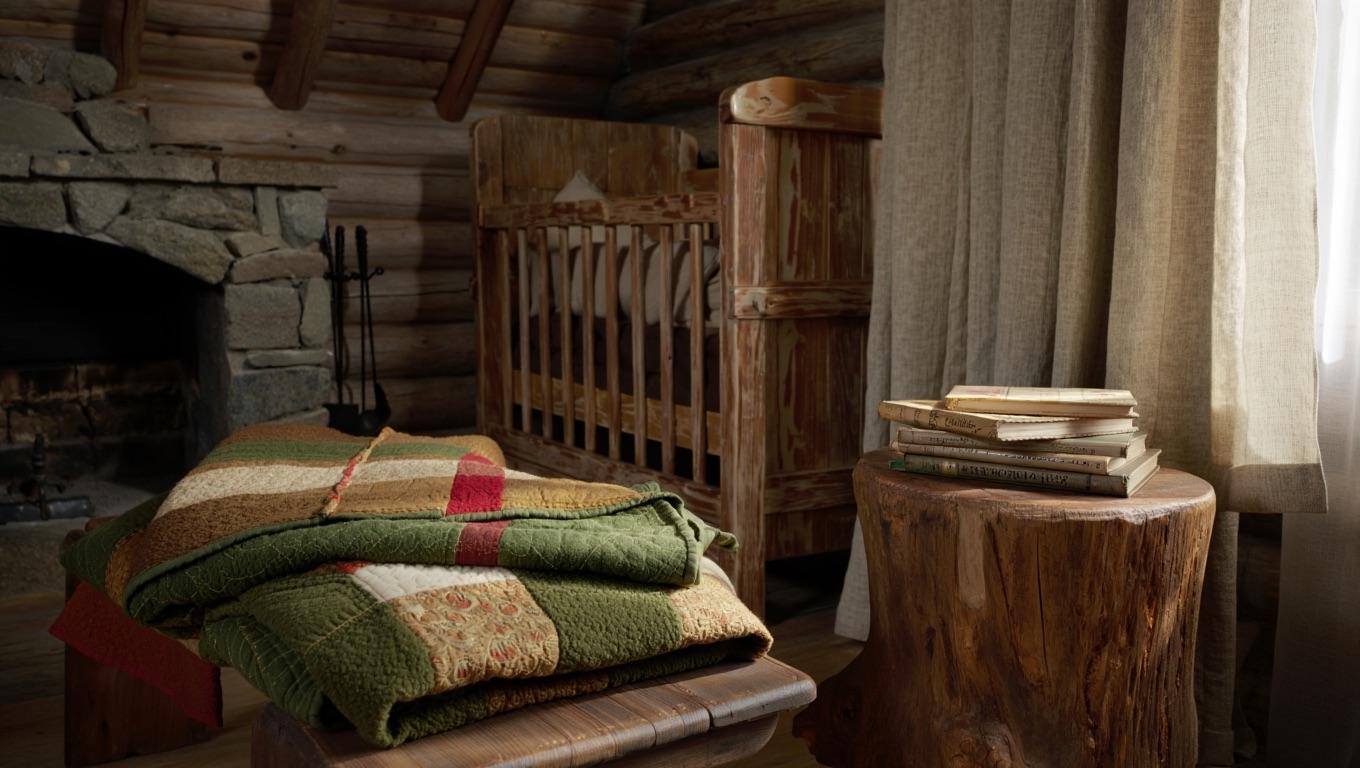267 Old-Fashioned Baby Boy Names With Vintage Charm

Have you ever wondered why some parents choose names that sound like they belong in a history book?
Old-fashioned names are making a big comeback in today’s world.
Many parents love these vintage names because they sound strong and timeless.
These classic names never go out of style and often have beautiful meanings behind them.
Some vintage names remind us of famous kings or wise leaders from the past. Others simply sound stylish.
Many parents choose these names to honor their family history.
Let’s explore how different cultures have influenced these classic names.
Then we’ll share our complete list of old-fashioned boy names.
Cultural Influence on Old-Fashioned Names
Different cultures have unique ways of naming their children.
Some cultures consider it lucky to name babies after family members.
Other cultures believe naming after dead relatives brings bad luck.
European cultures often use names from the Bible, saints, or kings.
Popular examples include Henry, Edward, and George. Italian and Greek families prefer saint names like Anthony and Nicholas.
French culture gave us names like Louis and Charles.
Asian cultures choose names with special meanings, like Chinese names, which often relate to nature or good qualities.
Japanese names may show birth order or family status. Indian names connect to religion and gods.
African cultures celebrate naming with special ceremonies.
An elder whispers the name to the baby first. Then everyone learns the new name together.
Now let’s check out various old-fashioned names for your boy.
Popular Old-Fashioned Names

These classic names bring vintage charm and have stood the test of time with strength, tradition, and character.
1. Abelard
Meaning: Noble strength
Origin: Germanic
2. Archibald
Meaning: Bold and genuine
Origin: Scottish
3. Atticus
Meaning: From Attica
Origin: Latin
4. Bartholomew
Meaning: Son of Talmai
Origin: Hebrew
5. Benedict
Meaning: Blessed
Origin: Latin
6. Bertram
Meaning: Bright raven
Origin: Germanic
7. Caius
Meaning: Rejoice
Origin: Latin
8. Clarence
Meaning: Bright or clear
Origin: Latin
9. Cornelius
Meaning: Horn
Origin: Latin
10. Edmund
Meaning: Prosperous protector
Origin: English
11. Enoch
Meaning: Dedicated
Origin: Hebrew
12. Ephraim
Meaning: Fruitful
Origin: Hebrew
13. Fabian
Meaning: Bean grower
Origin: Latin
14. Felix
Meaning: Happy or lucky
Origin: Latin
15. Finnian
Meaning: Fair or white
Origin: Irish
16. Gilbert
Meaning: Bright pledge
Origin: Germanic
17. Gideon
Meaning: Hewer or feller
Origin: Hebrew
18. Grover
Meaning: From the grove
Origin: English
19. Harold
Meaning: Army ruler
Origin: Scandinavian
20. Horace
Meaning: Timekeeper
Origin: Latin
21. Ignatius
Meaning: Fiery
Origin: Latin
22. Jasper
Meaning: Treasurer
Origin: Persian
23. Julian
Meaning: Youthful
Origin: Latin
24. Leopold
Meaning: Brave people
Origin: Germanic
25. Linus
Meaning: Flaxen-haired
Origin: Greek
26. Malachi
Meaning: Messenger of God
Origin: Hebrew
27. Morris
Meaning: Dark-skinned
Origin: Latin
28. Napoleon
Meaning: Lion of the new city
Origin: Italian
29. Orville
Meaning: Golden town
Origin: French
30. Percival
Meaning: Pierces the valley
Origin: French
31. Phineas
Meaning: Oracle
Origin: Hebrew
32. Quentin
Meaning: Fifth
Origin: Latin
33. Reginald
Meaning: King’s advisor
Origin: Germanic
34. Rupert
Meaning: Bright fame
Origin: German
35. Silas
Meaning: Wood or forest
Origin: Latin
36. Solomon
Meaning: Peace
Origin: Hebrew
37. Thaddeus
Meaning: Courageous heart
Origin: Aramaic
38. Tobias
Meaning: God is good
Origin: Hebrew
39. Ulric
Meaning: Wealthy ruler
Origin: Germanic
40. Ulysses
Meaning: Wrathful
Origin: Latin
41. Valentine
Meaning: Strong and healthy
Origin: Latin
42. Victor
Meaning: Conqueror
Origin: Latin
43. Wallace
Meaning: Foreigner or Welshman
Origin: Scottish
44. Wendell
Meaning: Wanderer
Origin: German
45. Wilbur
Meaning: Wild boar fortress
Origin: English
46. Winston
Meaning: Joyful stone
Origin: English
47. Xavier
Meaning: New house
Origin: Basque
48. Yves
Meaning: Yew wood
Origin: French
49. Zachariah
Meaning: God remembers
Origin: Hebrew
50. Zebulon
Meaning: Dwelling
Origin: Hebrew
51. Ambrose
Meaning: Immortal
Origin: Latin
52. Clement
Meaning: Merciful
Origin: Latin
53. Erasmus
Meaning: Beloved
Origin: Greek
54. Ferdinand
Meaning: Bold voyager
Origin: Germanic
55. Horatio
Meaning: Man of time
Origin: Latin
56. Lazarus
Meaning: God has helped
Origin: Hebrew
57. Roderick
Meaning: Famous ruler
Origin: Germanic
58. Wilfred
Meaning: Peaceful will
Origin: English
59. Alfred
Meaning: Wise counselor
Origin: English
60. Arthur
Meaning: Bear
Origin: Celtic
61. Basil
Meaning: Royal or kingly
Origin: Greek
62. Bernard
Meaning: Brave as a bear
Origin: Germanic
63. Cecil
Meaning: Blind
Origin: Latin
64. Chester
Meaning: Fortress
Origin: Latin
65. Claude
Meaning: Lame
Origin: Latin
66. Cyril
Meaning: Lordly
Origin: Greek
67. Dennis
Meaning: Follower of Dionysius
Origin: Greek
68. Edgar
Meaning: Wealthy spear
Origin: English
69. Edwin
Meaning: Rich friend
Origin: English
70. Ernest
Meaning: Serious
Origin: Germanic
71. Eugene
Meaning: Well-born
Origin: Greek
72. Francis
Meaning: Frenchman
Origin: Latin
73. Frederick
Meaning: Peaceful ruler
Origin: Germanic
74. George
Meaning: Farmer
Origin: Greek
75. Gerald
Meaning: Spear ruler
Origin: Germanic
76. Gregory
Meaning: Watchful
Origin: Greek
77. Henry
Meaning: Home ruler
Origin: Germanic
78. Herbert
Meaning: Illustrious warrior
Origin: Germanic
79. Hugh
Meaning: Mind or spirit
Origin: Germanic
80. Isaac
Meaning: He will laugh
Origin: Hebrew
81. James
Meaning: Supplanter
Origin: Hebrew
82. Jerome
Meaning: Sacred name
Origin: Greek
83. Joseph
Meaning: God will add
Origin: Hebrew
84. Kenneth
Meaning: Handsome
Origin: Scottish
85. Lawrence
Meaning: From Laurentum
Origin: Latin
86. Leonard
Meaning: Brave lion
Origin: Germanic
87. Lionel
Meaning: Young lion
Origin: Latin
88. Martin
Meaning: Warlike
Origin: Latin
89. Maurice
Meaning: Dark-skinned
Origin: Latin
90. Norman
Meaning: Northman
Origin: English
91. Oliver
Meaning: Olive tree
Origin: Latin
92. Philip
Meaning: Lover of horses
Origin: Greek
93. Ralph
Meaning: Wolf counsel
Origin: Germanic
94. Raymond
Meaning: Wise protector
Origin: Germanic
Uncommon Old-Fashioned Names

These rare old-fashioned names carry a unique flair, perfect for those seeking something bold, distinctive, and rooted in tradition.
95. Algernon
Meaning: With mustache
Origin: French
96. Amadeus
Meaning: Love of God
Origin: Latin
97. Anselm
Meaning: God’s protection
Origin: Germanic
98. Barnabas
Meaning: Son of encouragement
Origin: Aramaic
99. Beauregard
Meaning: Beautiful gaze
Origin: French
100. Belvedere
Meaning: Beautiful view
Origin: Italian
101. Casimir
Meaning: Proclaimer of peace
Origin: Slavic
102. Ezekiel
Meaning: God strengthens
Origin: Hebrew
103. Florian
Meaning: Blooming
Origin: Latin
104. Godfrey
Meaning: God’s peace
Origin: Germanic
105. Isidore
Meaning: Gift of Isis
Origin: Greek
106. Jabez
Meaning: Sorrow
Origin: Hebrew
107. Jedediah
Meaning: Beloved of the Lord
Origin: Hebrew
108. Lysander
Meaning: Liberator
Origin: Greek
109. Malachai
Meaning: Messenger
Origin: Hebrew
110. Melchior
Meaning: King of light
Origin: Hebrew
111. Mordecai
Meaning: Warrior
Origin: Hebrew
112. Octavius
Meaning: Eighth
Origin: Latin
113. Orson
Meaning: Bear cub
Origin: Latin
114. Osric
Meaning: Divine ruler
Origin: Old English
115. Ptolemy
Meaning: Aggressive or warlike
Origin: Greek
116. Quillon
Meaning: Crossing swords
Origin: Latin
117. Ragnar
Meaning: Warrior of the gods
Origin: Norse
118. Theophilus
Meaning: Friend of God
Origin: Greek
119. Tiberius
Meaning: Of the Tiber (river)
Origin: Latin
120. Uriah
Meaning: God is my light
Origin: Hebrew
121. Valerian
Meaning: Strength
Origin: Latin
122. Virgil
Meaning: Flourishing
Origin: Latin
123. Walden
Meaning: Valley of the Britons
Origin: English
124. Xerxes
Meaning: Ruler over heroes
Origin: Persian
125. Zephyrus
Meaning: West wind
Origin: Greek
126. Thelonius
Meaning: Ruler of the people
Origin: Latinized Germanic
127. Llewellyn
Meaning: Like a lion
Origin: Welsh
128. Leander
Meaning: Lion man
Origin: Greek
129. Hieronymus
Meaning: Sacred name
Origin: Greek
130. Aloysius
Meaning: Famous warrior
Origin: Germanic
131. Balthazar
Meaning: God protects the king
Origin: Babylonian
132. Crispin
Meaning: Curly-haired
Origin: Latin
133. Cyprian
Meaning: From Cyprus
Origin: Latin
134. Darius
Meaning: Wealthy
Origin: Persian
135. Emeric
Meaning: Power or ruler
Origin: Germanic
136. Gustav
Meaning: Staff of the gods
Origin: Scandinavian
137. Hadrian
Meaning: From Hadria
Origin: Latin
138. Hezekiah
Meaning: God strengthens
Origin: Hebrew
139. Icarus
Meaning: Follower
Origin: Greek
140. Isidro
Meaning: Gift of Isis
Origin: Spanish
141. Lemuel
Meaning: Devoted to God
Origin: Hebrew
142. Lucius
Meaning: Light
Origin: Latin
143. Magnus
Meaning: Great
Origin: Latin
144. Matthias
Meaning: Gift of God
Origin: Hebrew
145. Nestor
Meaning: Homecoming
Origin: Greek
146. Obadiah
Meaning: Servant of God
Origin: Hebrew
147. Philemon
Meaning: Loving
Origin: Greek
148. Reuben
Meaning: Behold, a son
Origin: Hebrew
149. Sampson
Meaning: Sun child
Origin: Hebrew
150. Theodoric
Meaning: People’s ruler
Origin: Germanic
151. Vincent
Meaning: Conquering
Origin: Latin
152. Zephaniah
Meaning: God has hidden
Origin: Hebrew
153. Zoraster
Meaning: Starry one
Origin: Persian
154. Zosimus
Meaning: Likely to survive
Origin: Greek
155. Abner
Meaning: Father of light
Origin: Hebrew
156. Ebenezer
Meaning: Stone of help
Origin: Hebrew
157. Elwood
Meaning: Old forest
Origin: English
158. Eustace
Meaning: Fruitful
Origin: Greek
159. Jethro
Meaning: Excellence
Origin: Hebrew
160. Josiah
Meaning: God supports
Origin: Hebrew
161. Marmaduke
Meaning: Devotee of Maedoc
Origin: Irish
162. Mortimer
Meaning: Dead sea
Origin: French
163. Rufus
Meaning: Red-haired
Origin: Latin
164. Simeon
Meaning: God has heard
Origin: Hebrew
165. Titus
Meaning: Title of honor
Origin: Latin
166. Balthasar
Meaning: God protects the king
Origin: Babylonian
167. Emilian
Meaning: Rival
Origin: Latin
168. Festus
Meaning: Joyful
Origin: Latin
169. Isidorus
Meaning: Gift of Isis
Origin: Greek
170. Peregrine
Meaning: Wanderer
Origin: Latin
171. Septimus
Meaning: Seventh
Origin: Latin
172. Thane
Meaning: Nobleman
Origin: Scottish
173. Ansel
Meaning: God’s protection
Origin: Germanic
174. Augustine
Meaning: Majestic
Origin: Latin
175. Baldwin
Meaning: Bold friend
Origin: Germanic
176. Cadmus
Meaning: One who excels
Origin: Greek
177. Dorian
Meaning: Of Doris
Origin: Greek
178. Elmer
Meaning: Noble and famous
Origin: English
179. Amory
Meaning: Brave and powerful
Origin: Germanic
180. Aurelius
Meaning: Golden
Origin: Latin
181. Cuthbert
Meaning: Bright fame
Origin: Old English
182. Eleazar
Meaning: God has helped
Origin: Hebrew
183. Gervase
Meaning: Spear servant
Origin: Germanic
184. Lysias
Meaning: Liberator
Origin: Greek
185. Theobald
Meaning: Brave people
Origin: Germanic
186. Abraham
Meaning: Father of many
Origin: Hebrew
Old-Fashioned Names with Unique Meanings

These old-fashioned names stand out for their rare, symbolic, or poetic meanings, perfect for those who want a name with depth and distinction.
187. Alaric
Meaning: Ruler of all
Origin: Germanic
188. Aldous
Meaning: Old or wise
Origin: English
189. Alpheus
Meaning: Successor
Origin: Greek
190. Amias
Meaning: Loved
Origin: Latin
191. Blaise
Meaning: Lisping
Origin: Latin
192. Caledon
Meaning: Hard or rocky land
Origin: Scottish
193. Caspian
Meaning: From the Caspian Sea
Origin: Latin
194. Cedric
Meaning: Kindly and loved
Origin: Celtic
195. Corbinian
Meaning: Raven
Origin: German
196. Dashiell
Meaning: Page boy
Origin: French
197. Demetrius
Meaning: Follower of Demeter
Origin: Greek
198. Ferris
Meaning: Rock
Origin: Irish
199. Godric
Meaning: God’s ruler
Origin: Anglo-Saxon
200. Hiram
Meaning: Exalted brother
Origin: Hebrew
201. Inigo
Meaning: Fiery
Origin: Spanish
202. Isambard
Meaning: Bright iron
Origin: Germanic
203. Judicael
Meaning: Generous lord
Origin: Breton
204. Kaelan
Meaning: Mighty warrior
Origin: Irish
205. Malachy
Meaning: Messenger of God
Origin: Irish
206. Marcellus
Meaning: Little warrior
Origin: Latin
207. Maximilian
Meaning: Greatest
Origin: Latin
208. Oberon
Meaning: Noble or bearlike
Origin: Germanic
209. Piers
Meaning: Rock
Origin: English
210. Prospero
Meaning: Fortunate
Origin: Latin
211. Quintus
Meaning: Fifth
Origin: Latin
212. Radcliff
Meaning: Red cliff
Origin: English
213. Remus
Meaning: Oar
Origin: Latin
214. Roscoe
Meaning: Deer forest
Origin: Norse
215. Theron
Meaning: Hunter
Origin: Greek
216. Urban
Meaning: Of the city
Origin: Latin
217. Yorick
Meaning: Earth worker
Origin: Scandinavian
Timeless Traditional Names

These names have remained familiar for generations. Their long-standing popularity reflects strength, warmth, and a classic feel that never fades.
218. Adolphus
Meaning: Noble wolf
Origin: Germanic
219. Albert
Meaning: Noble and bright
Origin: Germanic
220. Calvin
Meaning: Bald
Origin: Latin
221. Elton
Meaning: Ella’s town
Origin: English
222. Hector
Meaning: Holding fast
Origin: Greek
223. Miles
Meaning: Soldier
Origin: Latin
224. Milton
Meaning: Mill town
Origin: English
225. Nathaniel
Meaning: Gift of God
Origin: Hebrew
226. Oswald
Meaning: Divine power
Origin: English
227. Owen
Meaning: Young warrior
Origin: Welsh
228. Patrick
Meaning: Nobleman
Origin: Latin
229. Richard
Meaning: Brave ruler
Origin: Germanic
230. Robert
Meaning: Bright fame
Origin: Germanic
231. Roland
Meaning: Famous land
Origin: Germanic
232. Ronald
Meaning: Ruler’s counselor
Origin: Norse
233. Roy
Meaning: Red-haired
Origin: French
234. Russell
Meaning: Little red
Origin: French
235. Samuel
Meaning: God has heard
Origin: Hebrew
236. Simon
Meaning: He has heard
Origin: Hebrew
237. Stephen
Meaning: Crown
Origin: Greek
238. Theodore
Meaning: Gift of God
Origin: Greek
239. Thomas
Meaning: Twin
Origin: Aramaic
240. Timothy
Meaning: Honoring God
Origin: Greek
241. Vernon
Meaning: Alder tree
Origin: French
242. Walter
Meaning: Army ruler
Origin: Germanic
243. Warren
Meaning: Game park
Origin: French
244. Wesley
Meaning: Western meadow
Origin: English
245. William
Meaning: Resolute protector
Origin: Germanic
246. Woodrow
Meaning: Row of houses by a wood
Origin: English
247. Adrian
Meaning: From Hadria
Origin: Latin
Rustic Heritage Names

These names reflect roots in simplicity, faith, and country charm, many drawn from biblical or pioneer traditions that feel earthy and grounded.
248. Amos
Meaning: Carried by God
Origin: Hebrew
249. Asa
Meaning: Healer or physician
Origin: Hebrew
250. Barnaby
Meaning: Son of consolation
Origin: English
251. Clementine
Meaning: Merciful
Origin: Latin
252. Cyrus
Meaning: Sun or throne
Origin: Persian
253. Eli
Meaning: Ascended or uplifted
Origin: Hebrew
254. Hosea
Meaning: Salvation
Origin: Hebrew
255. Ichabod
Meaning: No glory
Origin: Hebrew
256. Ira
Meaning: Watchful
Origin: Hebrew
257. Jedidiah
Meaning: Beloved of the Lord
Origin: Hebrew
258. Jonas
Meaning: Dove
Origin: Hebrew
259. Laban
Meaning: White
Origin: Hebrew
260. Levi
Meaning: Joined or attached
Origin: Hebrew
261. Luther
Meaning: Army of the people
Origin: German
262. Micah
Meaning: Who is like God?
Origin: Hebrew
263. Milo
Meaning: Merciful or soldier
Origin: Germanic
264. Nahum
Meaning: Comfort
Origin: Hebrew
265. Obed
Meaning: Servant
Origin: Hebrew
266. Seth
Meaning: Appointed
Origin: Hebrew
267. Zebedee
Meaning: Gift of God
Origin: Hebrew
Wrapping Up
Old-fashioned boy names offer a perfect blend of history, meaning, and timeless appeal for modern families.
These classic names have survived through many generations because they sound strong.
Parents today love choosing vintage names that connect their children to rich cultural traditions and stories.
These names carry deep meanings that can inspire and guide children throughout their lives.
Many old-fashioned names also have nicknames that work well in today’s world.
Choosing the right name for your baby is an important decision that will last a lifetime.
Old-fashioned names give children a strong foundation and connection to the past.
These timeless choices will never go out of style and always sound meaningful.
Take your time exploring these wonderful vintage names and find the perfect one for your little one.






